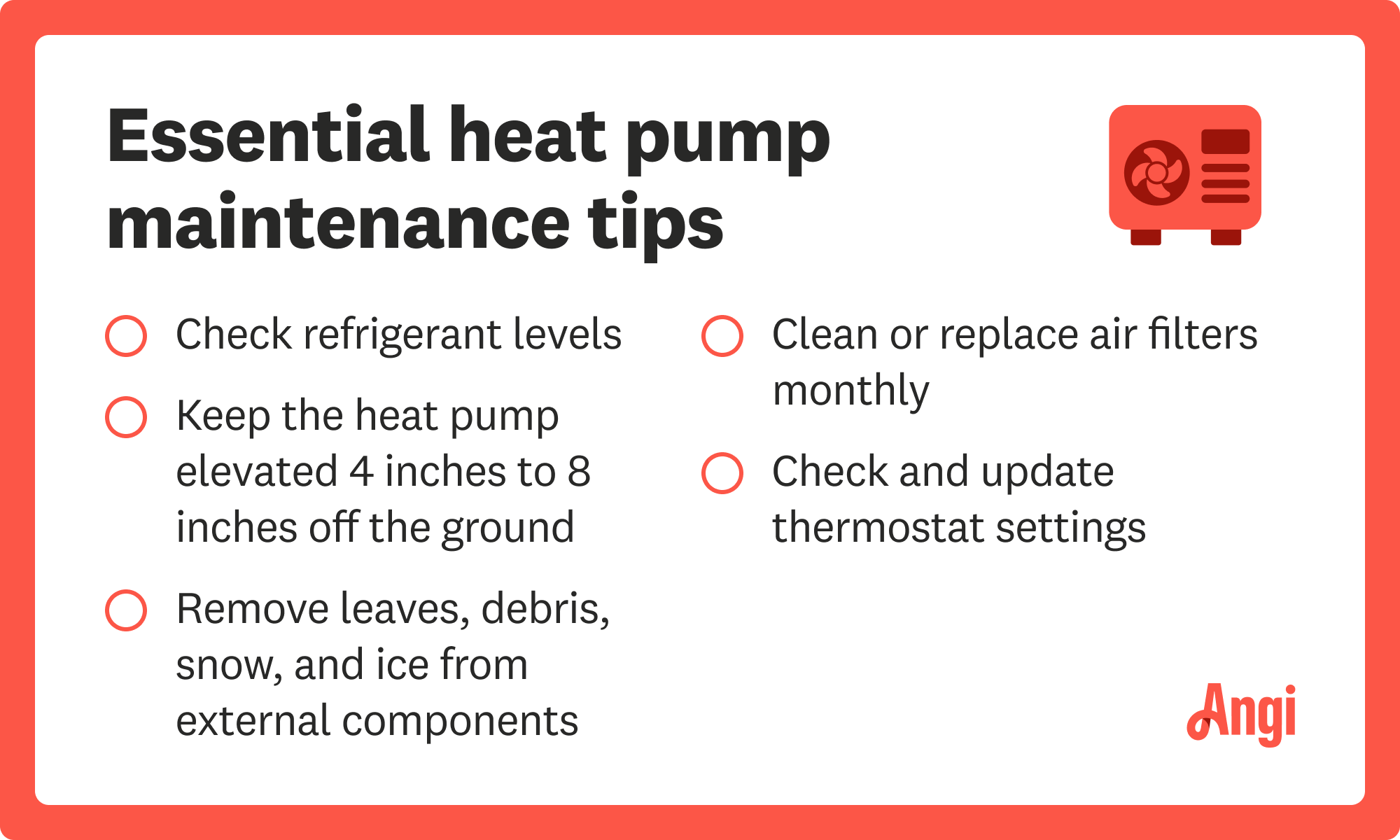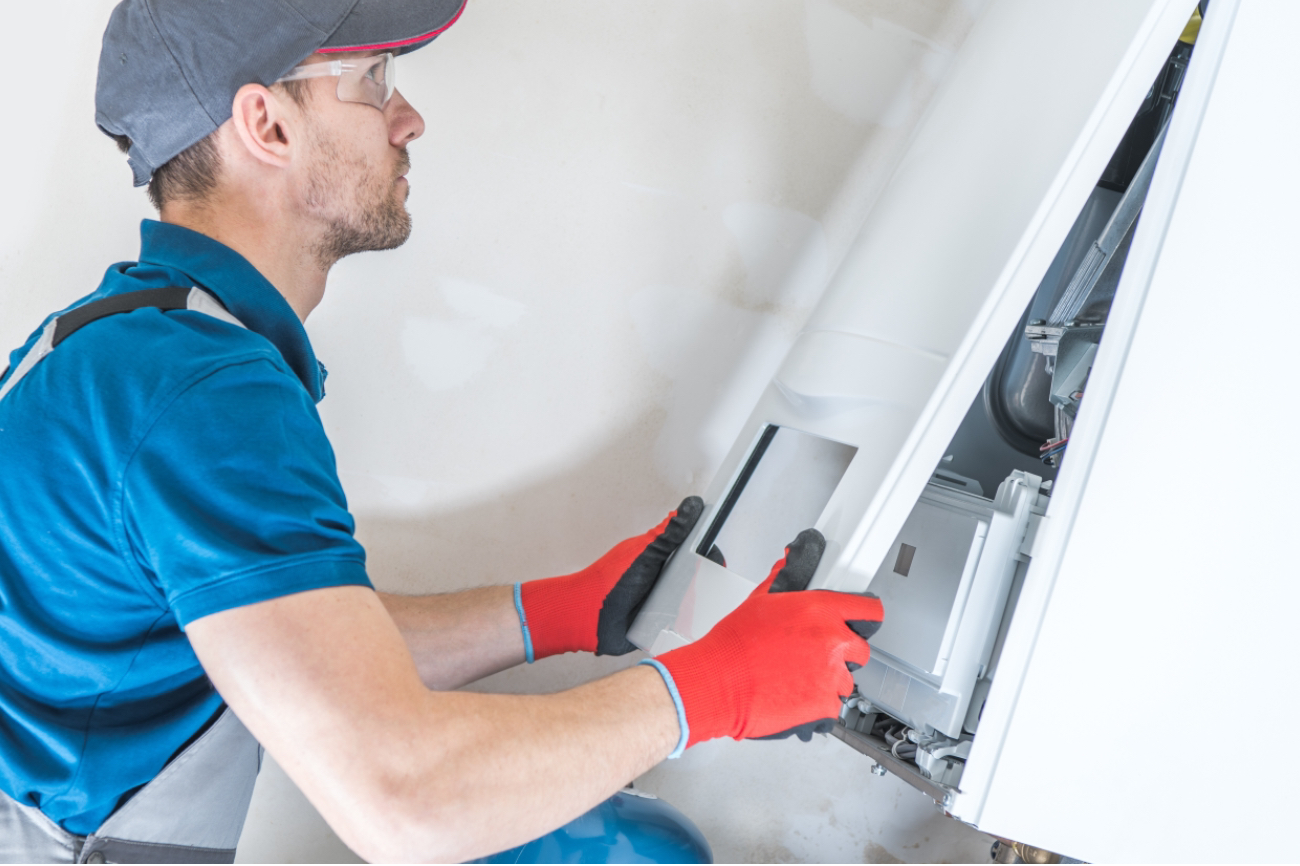
A blower door test can identify air leaks in your home and help boost energy efficiency. Use this blower door test cost guide to see what your test will total.
Heating and air conditioning service costs depend on your project and location. Check with a local pro for your specific job.
The size of your home and the type of heat pump you want installed are the two biggest cost factors to think about.
Air source heat pumps and mini-splits are the most common options in Houston, and they cost half as much as geothermal heat pumps.
Some heat pumps can provide AC through Houston’s brutal summers and offer plenty of heat through the mild winters.
Houston has an incentive available for heat pump installation, and installers can pass savings onto you as the customer.
Heat pump costs in Houston, Texas, average $5,367, and most projects fall between $3,813 and $6,921. Your cost will depend mostly on your home size or heat pump capacity, as well as the type of heat pump you choose. The efficiency of your new HVAC system and whether or not you need ductwork will also affect pricing.
Houston residents can pay as little as $2,300 for heat pump installation, and prices can climb as high as $8,000, depending on a few key factors.
Just like any other HVAC system, your heat pump’s capacity needs to match your home size. It’s best to have a heat pump installer near you determine what size heat pump you need since there are many things that affect sizing, like home age and insulation quality. However, you can get a good estimate based on home square footage. A good rule of thumb is to start with 2 tons of capacity for the first 1,000 square feet of living space and add a half ton for every additional 500 square feet.
Heat pumps both heat and cool your home and can be ducted or ductless. They work similarly to air conditioners, but heat pumps can reverse the cooling process and also warm your home.
The average home in Houston is just under 1,850 square feet, which means the average heat pump size in the area is 3 tons. A 3-ton heat pump will cost between $3,400 and $5,450.
| Capacity (Tons) | Home Size (Sq. Ft.) | Cost Range |
|---|---|---|
| 2 | 1,000 | $3,100–$4,900 |
| 2.5 | 1,500 | $3,300–$5,100 |
| 3 | 2,000 | $3,400–$5,500 |
| 3.5 | 2,500 | $3,400–$5,600 |
| 4 | 3,000 | $3,500–$6,400 |
| 4.5 | 3,500 | $4,000–$7,800 |
There are a few types of heat pumps to choose from, and the one you pick will also have a major impact on your installation costs. Most homeowners in Houston choose an air source heat pump or a ductless mini-split, both of which exchange heat between your living space and the air outside. These are the most affordable options, totaling between $1,300 and $7,000.
Geothermal heat pumps require mass excavation, which can be challenging and expensive, especially in Houston’s heavy clay soil. Geothermal heat pumps cost between $5,200 and $20,000, making them twice as expensive as most other options. Hybrid heat pumps couple heat pump technology with other HVAC systems and fuel sources. These are uncommon in Houston because homeowners don’t need much heating capacity through the mild winters.
| Heat Pump Type | Cost Range | Pros | Cons |
|---|---|---|---|
| Air source | $4,000–$8,000 | Efficient in Houston | Minimal maintenance |
| Geothermal | $5,200–$20,000 | Long lifespan | Expensive excavation |
| Hybrid | $2,200–$8,800 | Reliable | Lots of maintenance |
| Mini-split | $1,200–$7,000 | Most affordable | Visible wall units |
Heat pumps have varying levels of efficiency measured by the seasonal energy efficiency ratio (SEER) and the updated SEER2 ratings that went into effect in 2023. Heat pumps in Houston need to have SEER ratings of 14.5 or higher and SEER2 ratings of 13.8 or higher. Smaller mini-splits with outputs under 45,000 British Thermal Units (BTUs) per hour have higher requirements (15.0 SEER and 14.3 SEER2).
A higher SEER rating will drive up material costs but can save you money on electricity bills and HVAC maintenance in the long run. Upgrading efficiency is a wise decision in a place like Houston, where long, intense summers mean homeowners depend heavily on their systems for cooling. Texas residents also have some of the highest electric bills in the country, which means higher efficiency will save you even more over time than it would in most other states.
| SEER Rating | Cost Range |
|---|---|
| 15 | $1,600–$5,200 |
| 16 | $2,100–$5,500 |
| 18 | $2,600–$5,900 |
| 20 | $3,200–$8,400 |
If you’re installing ductless mini-splits or already have ducts running through your home, you won’t need to budget extra for ductwork. If you do need ductwork, you can expect to add between $3,000 and $7,500 to your total. That could increase significantly for larger homes.
Hiring an HVAC pro in Houston, Texas, is expensive. Labor alone costs between $500 and $3,000, with an average of $1,000. While labor can get pricey, the cost per hour in Houston is close to 5% lower than the national average, thanks to the below-average cost of living in the city.
The City of Houston also requires permits for HVAC work, and your professional will pull the permits but pass the permit fees on to you. The local building department in Houston charges a base cost of $46.35 for heat pump installation, plus $11.25 per ton. Given the average heat pump size of 3 tons in Houston, you’re looking at a permit fee of $80.10.

Installing a new heat pump will increase your home value, and it provides an average return on investment (ROI) of 30%. In Houston, that means a value bump of a little over $1,600. Buyers are often willing to pay more for a home that they know won’t leave them with expensive problems after closing, and a new HVAC system will give them that valuable peace of mind.
You can increase your ROI by choosing a heat pump that handles both heating and cooling to provide value throughout all seasons in Houston. Investing in a high-efficiency heat pump will bring returns, too, since they reduce operating costs in Texas, where electricity bills are well above average to begin with.
Home is the most important place on earth, which is why Angi has helped more than 150 million homeowners transform their houses into homes they adore. To help homeowners with their next project, Angi provides readers with the most accurate cost data and upholds strict editorial standards. We survey real Angi customers about their project costs to develop the pricing data you see, so you can make the best decisions for you and your home. We pair this data with research from reputable sources, including the U.S. Bureau of Labor Statistics, academic journals, market studies, and interviews with industry experts—all to ensure our prices reflect real-world projects.
Want to help us improve our cost data? Send us a recent project quote to [email protected]. Quotes and personal information will not be shared publicly.
From average costs to expert advice, get all the answers you need to get your job done.

A blower door test can identify air leaks in your home and help boost energy efficiency. Use this blower door test cost guide to see what your test will total.

Exposed ductwork can be a smart choice even beyond aesthetics. Fortunately, exposed ductwork costs are relatively low, and easy access keeps repair costs to a minimum.

Average costs of HVAC inspections vary based on house size, location, and type of HVAC system. Follow our easy guide to gauge your home’s HVAC inspection cost.

Tackling unwanted odors from indoor plants can be tricky. Learn how to use a carbon filter in your duct fan to improve air quality.

Not sure which type of furnace humidifier is best for your home? We’ve broken down four different options, explaining how they work and their benefits.

Discover heat exchanger replacement costs to learn about price factors, labor, and ways to save before hiring a pro or starting your project.